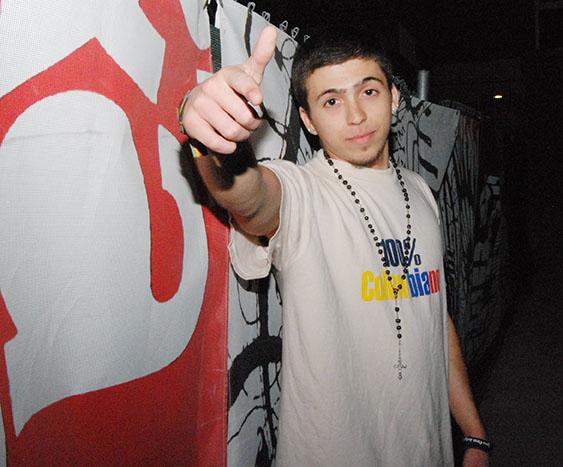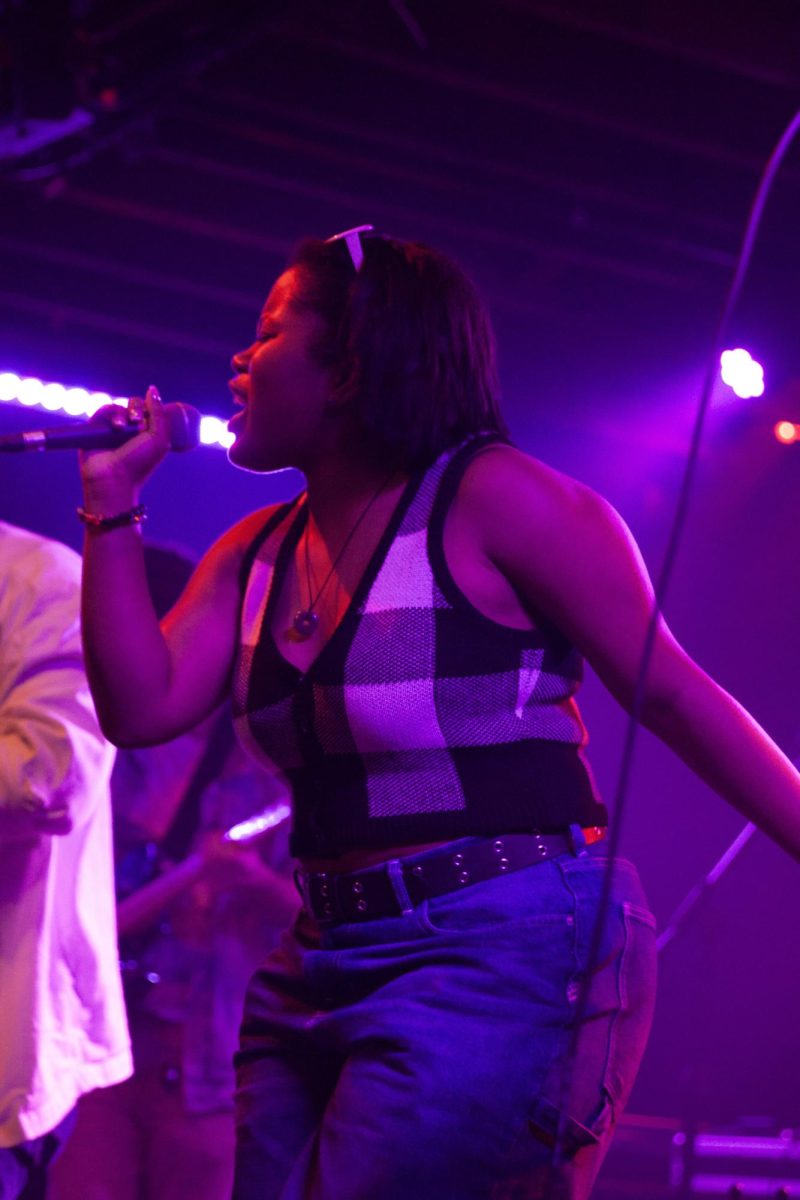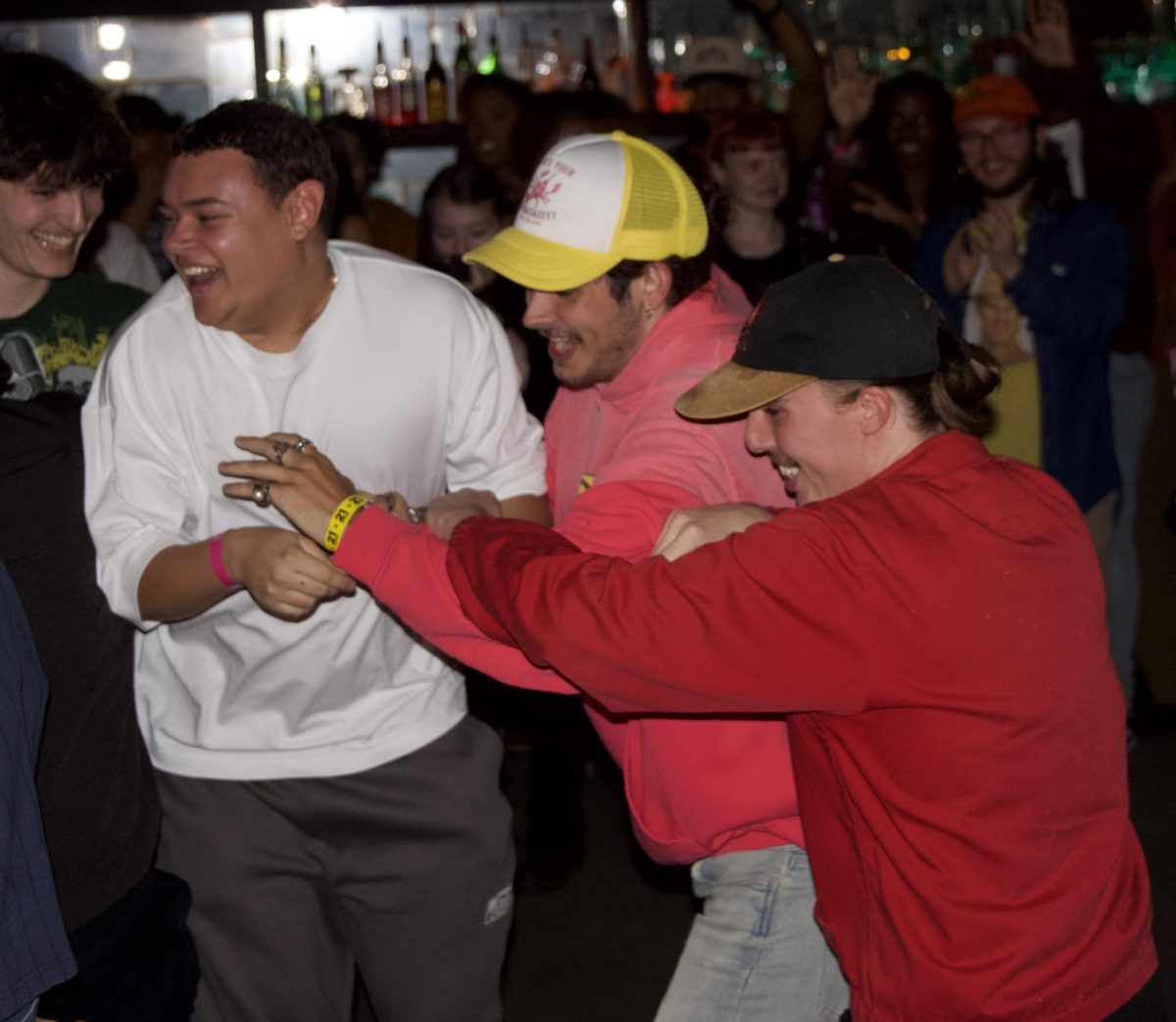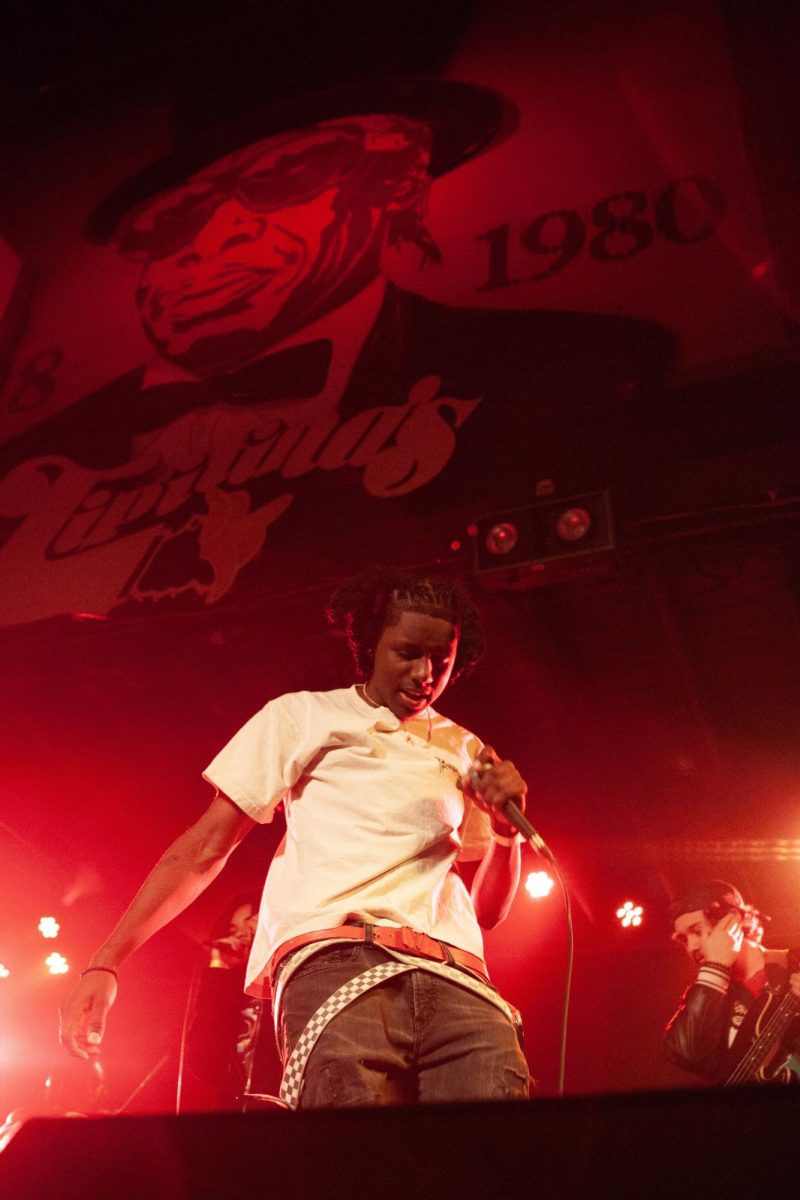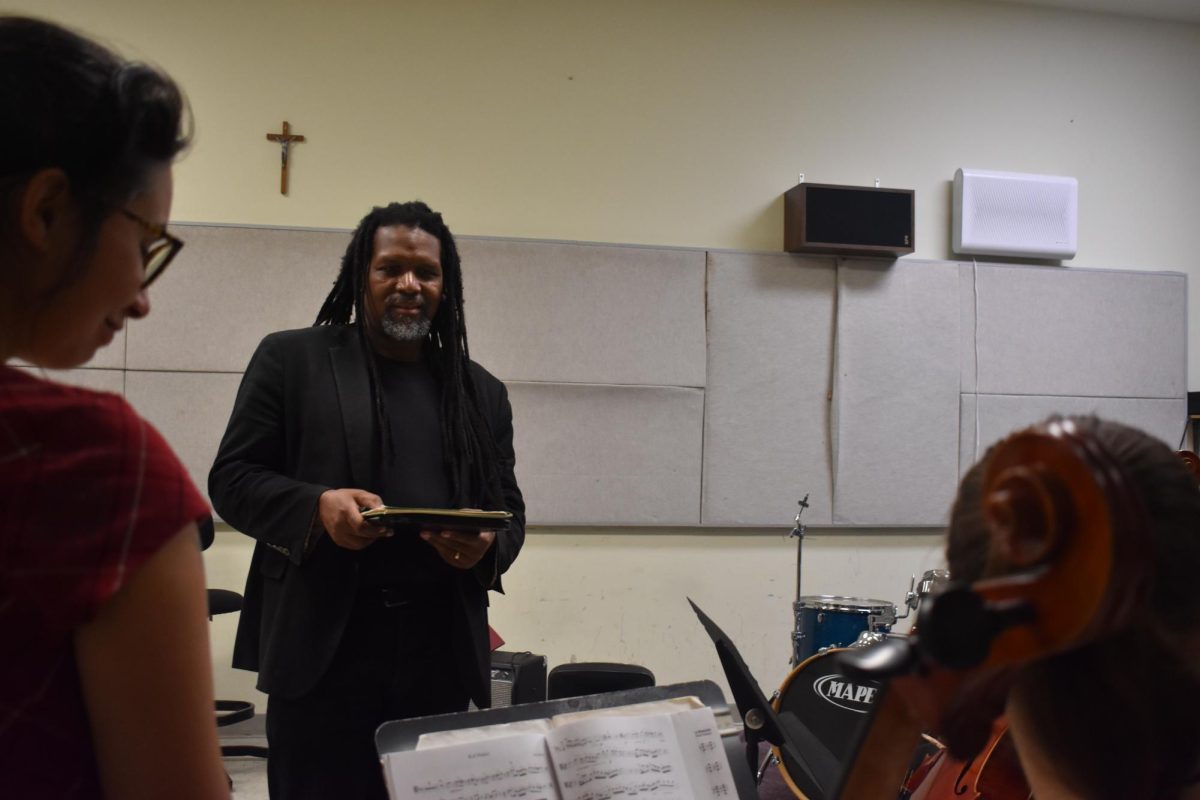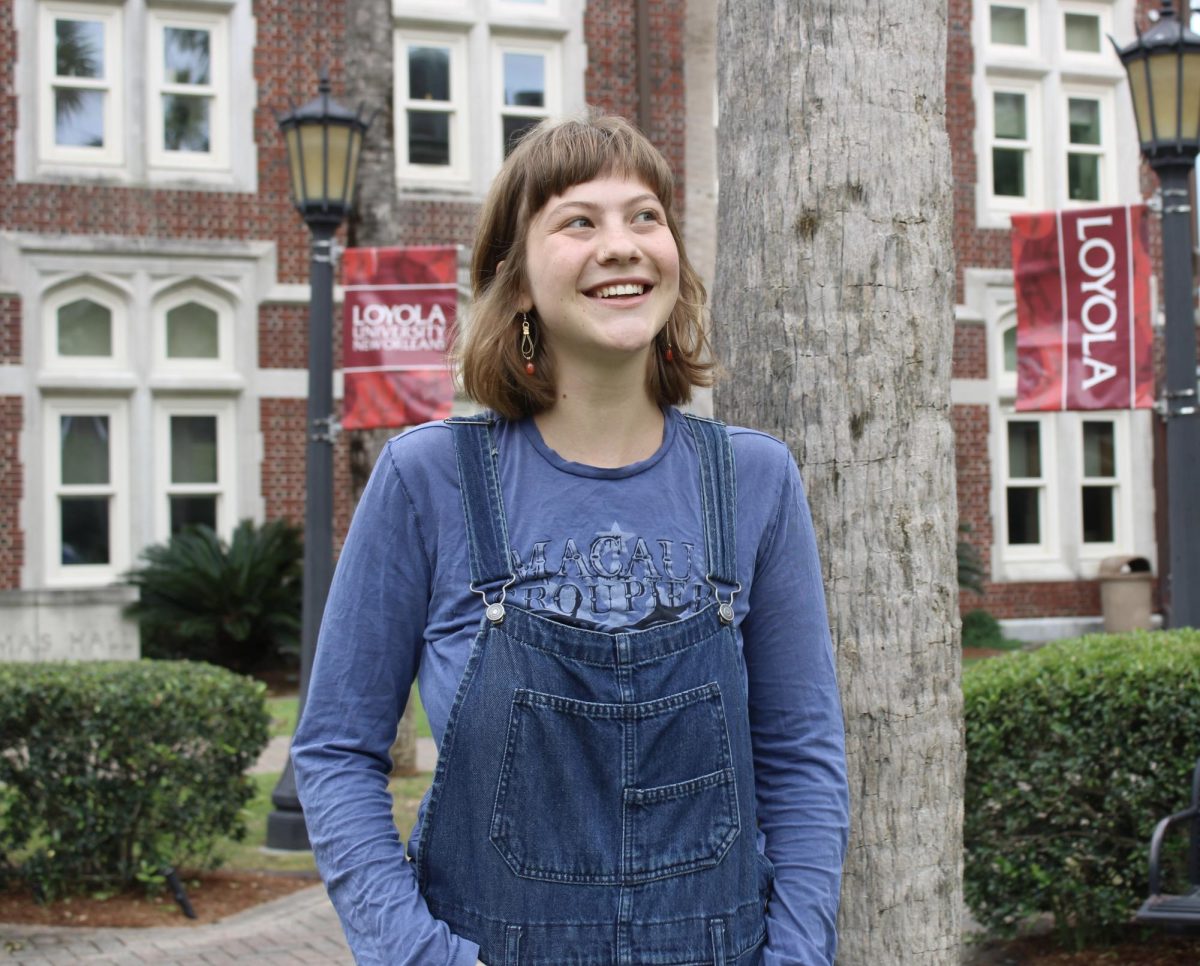Adam Stewart’s office is his bedroom, a studio space filled with two keyboards, two bass guitars, four guitars, a synthesizer, a banjo, a bunch of guitar pedals and guitar amps. His money comes from recording other artists, he said, and on top of this, he plays shows regularly.
“I go out almost every night, and I play about two shows a week,” Stewart, music industry studies junior, said. “When you’re playing a show, you have to get there two or three hours early to sound check, people don’t realize that. If you’re the headliner, you have to wait all night to play, and if you play first, you have to stay the whole time.”
Stewart plays in two bands – Coyotes and Aerial Attack. He DJs for another, engineers and produces records for local bands like Crooked Culture and Naughty Professor, and finds time for schoolwork somewhere in the middle.
“I have all of my classes stacked on Monday, Wednesday and Friday,” Stewart said. “I did it for this year, because I realized it would be a really hectic semester. On Tuesday and Thursday, I wake up as if I have class at 10 a.m., and I work until midnight. Music is my job.”
But when classes start at 9:30 a.m. the next morning, this can become difficult. He’s not the only student juggling a passion for music with a full-time coursework load. Many Loyola musicians like Stewart take advantage of the New Orleans music circuit, working with other musicians on projects and playing frequent nighttime gigs. Music industry studies sophomore and hip-hop artist Alex Camero agrees that the nights get long when playing a show.
“You set up, sound check and simultaneously, you’re constantly on social media, getting people to come out to the show,” Camero said. “I set up my merch table, and then I go on, run the show, afterwards networking with potential business partners. You see who’s interested and try to get people to sign up for the email list.”
It operates like a business because it is one, said music industry studies junior Collin McCabe. McCabe plays bass guitar in two bands – Bantam Foxes and Luxley. On gig nights, he said he could arrive at a venue around 8 p.m. and stay until 2 a.m.
“I probably play about eight to ten shows a month, and practice for about 12 hours a week between my two bands. But I recognize that I need to go to school, and I don’t blow off my classes.”
McCabe handles a portion of Bantam Foxes’s booking, design work and tour planning as well, since they operate as a D.I.Y. band. They don’t use a manager or booking agent, which does mean more work for McCabe.
“Bantam Foxes is a full-time job, and I balance a part-time job, 15 hours of classes, my other band and an internship with it,” he said. McCabe also said he knows some musicians choose to drop out of school to pursue music, but his first priority is to get his degree.
“If I’m not up until 2 a.m. at a show, I’m up until 2 a.m. doing homework,” he said.
Camero also refuses to let music get in the way of his schooling. “I always go to class,” he said. “I only missed one or two classes last year. I get my work done as early as possible.”
Stewart learned it all comes down to time management. “I have a legitimate old-person notebook,” he said. “I also write everything down on a calendar in front of me. I get my work done before I go out.”


